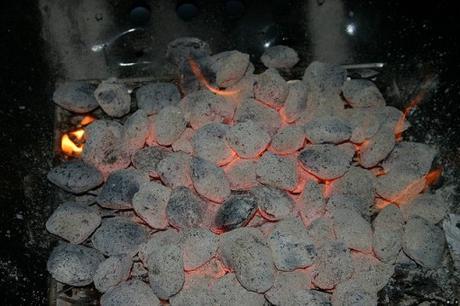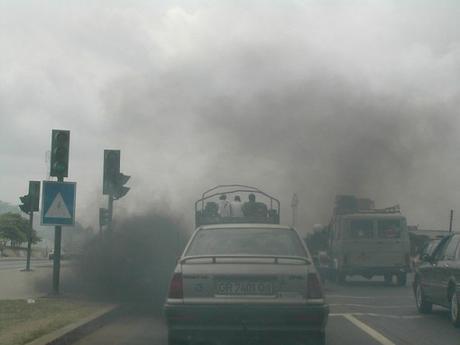Fossil fuels are used throughout the world to power everything from cars to lights in the home. However, there is currently a lot of hot debate over the use of fossil fuels – is it right to use them? Are they safe to use? Should we be trying to cut down how much we use year on year? Nowadays, we are finding more and more alternatives to fossil fuels, including more renewable sources of energy such as solar, wind and hydro power. The most common fossil fuels are coal, natural gas and petroleum, all of which have been formed over millions of years.
Learn more about advantages of fossil fuels here.
There is an urgent need to stop subsidizing the fossil fuel industry, dramatically reduce wasted energy, and significantly shift our power supplies from oil, coal, and natural gas to wind, solar, geothermal, and other renewable energy sources.
~ Bill McKibben

Coal – Most people will know coal as the thing that Santa Claus brings to children who have been naughty, but it is also a carbon based black rock that can be burned for energy.
Oil or Petroleum – This fossil fuel occurs as a liquid and can be refined into a number of other types of fuel such as diesel and airplane fuel. It has actually been used for many thousands of years as an energy source.
Natural Gas – or just ‘gas’ is a combination of various different gasses – including ethane, nitrogen and carbon dioxide, to name just a few – that is trapped inside the earth’s crust. It is most often use in cooking.
They are actually created by the decomposition of dead plant and animal life that existed on the Earth hundreds of millions of years ago, which means that there is actually a finite of each of these different fossil fuels. Once we have used up all the fossil fuels that currently exist on this planet, we will have to find alternative ways of heating and lighting our homes as well as traveling all over the globe. There are a number of benefits to using fossil fuels as well as a number of different drawbacks, which are listed below.
Pros of Fossil Fuels
1. Available in Plenty: We have already relied on fossil fuels for many years now, and we have everything in place, ready, to gather and use these essential resources. We already have plenty of people gathering coal and oil, for instance, from all the places in the world that are rich in fossil fuels, using all the equipment that has been specially designed and made for the extraction of fossil fuels. For this reason, it is better to use fossil fuels because we have already invested a lot of time, effort and money into procuring and using them.
2. Easier to Find: Fossil fuels are actually very easy to find. They occur all over the world, usually in very rich veins deep inside the earth, which means that, once we have committed to getting coal or gas out of the ground or out from under the sea, we are guaranteed to get a lot of resources from that particular area. The fact that they occur all over the world means that all nations and countries should have access to at least some fossil fuels. (Unfortunately, however, this does not always happen thanks to world politics!)
3. Extremely Efficient: Fossil fuels are extremely efficient. This means that they can generate huge amounts of energy, even if we just use a small amount of, for instance, oil or coal. So far, for instance, we have found that the most effective fuel for cars is, without doubt, petroleum. Nothing else – no renewable energies, at least – even comes close to generating the same amount of energy that fossil fuels do.
4. Easier to Transport: Whereas transporting renewable sources of energy such as wind, sun and water is impossible, transporting fossil fuels is actually relatively easy. In fact, it can be made very easy and very safe but the creating of pipes. These pipes are easily laid underground and can transport gas or oil with ease. Although they can be relatively expensive to lay in the first place, once they are completed, they serve as a very cheap and effective method of transportation for these essential fuels.
5. Generate Thousands of Jobs: Fossil fuels generate hundreds of thousands of jobs every year. To just abandon the use of fossil fuels now would lead to lots of people being jobless which could seriously affect the economy all over the world.
6. Easy Set Up: Unlike renewable energy sources which are infinite but have dependency on sun, wind and water, fossil fuels are available widely. A fossil fuel plant can be set up anywhere in the world as long as it gets large quantities of fuel to generate power. These fossil fuel plants are capable of generating huge amount of energy at a single location.

Cons of Fossil Fuels
Learn more about disadvantages of fossil fuels here.
1. Environmental Degradation: The main disadvantage of using fossil fuels, of course, is the pollution that they cause. The problems that are caused as a direct result of burning fossil fuels are well documented by scientists all throughout the world. Carbon dioxide is released into the air when fossil fuels are burned. This has been directly linked to global warming, making fossil fuels very dangerous to the general health of our planet.
2. Need Truckloads of Reserves: Power stations are where power comes from – coal is burned and energy is generated. However, for these power stations to keep working, they require huge amounts of coal to be brought in every single day. Truckloads of fuel, trainloads of fuel need to be shipped into power stations very regularly in order to keep up the level of energy that is required by all those houses, hospitals and shops relying on the power from these fossil fueled power stations.
This means that either power stations need to be built very close to large deposits of coal, or that the coal needs to be shipped miles away to the nearest power station, which requires more power and ends up damaging the Earth even more. These methods of generating electricity can, therefore, be incredibly expensive, and the prices are due to keep on rising as the fuel shortage worsens.
3. Public Health Issues: Fossil fuels are not at all environment friendly. Burning of fossil fuels result in pollution and can cause serious environmental concerns. Pollution-related diseases kill millions of children a year. According to WHO, 7 million premature deaths annually linked to air pollution. High levels of air pollution can adversely affect your lungs and trigger asthma. People who live in areas with a large amount of traffic are at high risk.
4. Finite Energy Source: Fossil fuels are a finite energy resource. Unlike sunlight, water or wind energy, fossil fuels cannot be renewed: the amount of fossil fuels in the earth’s crust today are all that we are ever going to get (at least until another several hundred million years pass and even more organic matter decays and decomposes). This means that, once the gas, coal and petroleum reserves have been completely used up, there is nothing more left.
Unfortunately this also means that we will not be able to use our cars any more as we have not yet found a suitable method to run cars that works as efficiently as petroleum or that is not dangerous.
5. Oil Spill: Once again, fossil fuels can damage the environment, this time in the form of oil spills. Huge tankers carrying oil from one place to another – at great cost and great risk – can sometimes crash or run aground and spill the content into the sea and on the nearby coast. This is disastrous not only for the sea and land but for the animals that live off of it. Birds can get coated in the oil and be unable to fly, fish can choke and other animals, such as seals or penguins, can ingest this deadly fuel when they try to clean it off themselves. Oil spills do not occur often, but when they do they can kill hundreds if not thousands of animals.
6. Rising Cost: Few middle-east countries in this world hold surplus amount of fossil fuels and are responsible for 40 percent of the world’s oil production. The rest of the world depend on these countries to fulfill the gap between demand and supply in their own countries. Lower output, fear of war, strikes by trade unions can result in worldwide price fluctuations.
7. Health of Coal-mining Workers: Foraging for coal in coal mines, for instance, can be very dangerous, since the dust that coats people who go down to get coal can get ingested and seriously compromise someone’s health. Mining for coal as well as drilling for oil can cost as many as hundreds of peoples’ lives every single year. We may need to find an energy source that is safer in the future.
Fossil fuels have a number of different pros and cons. Unfortunately, the biggest disadvantage to burning fossil fuels for energy is the fact that it is so damaging to the environment. However, luckily more and more effort is being put into finding alternative sources of energy such as renewable sources like sunlight and wind, which means that we should soon not have to rely on fossil fuels any longer.

